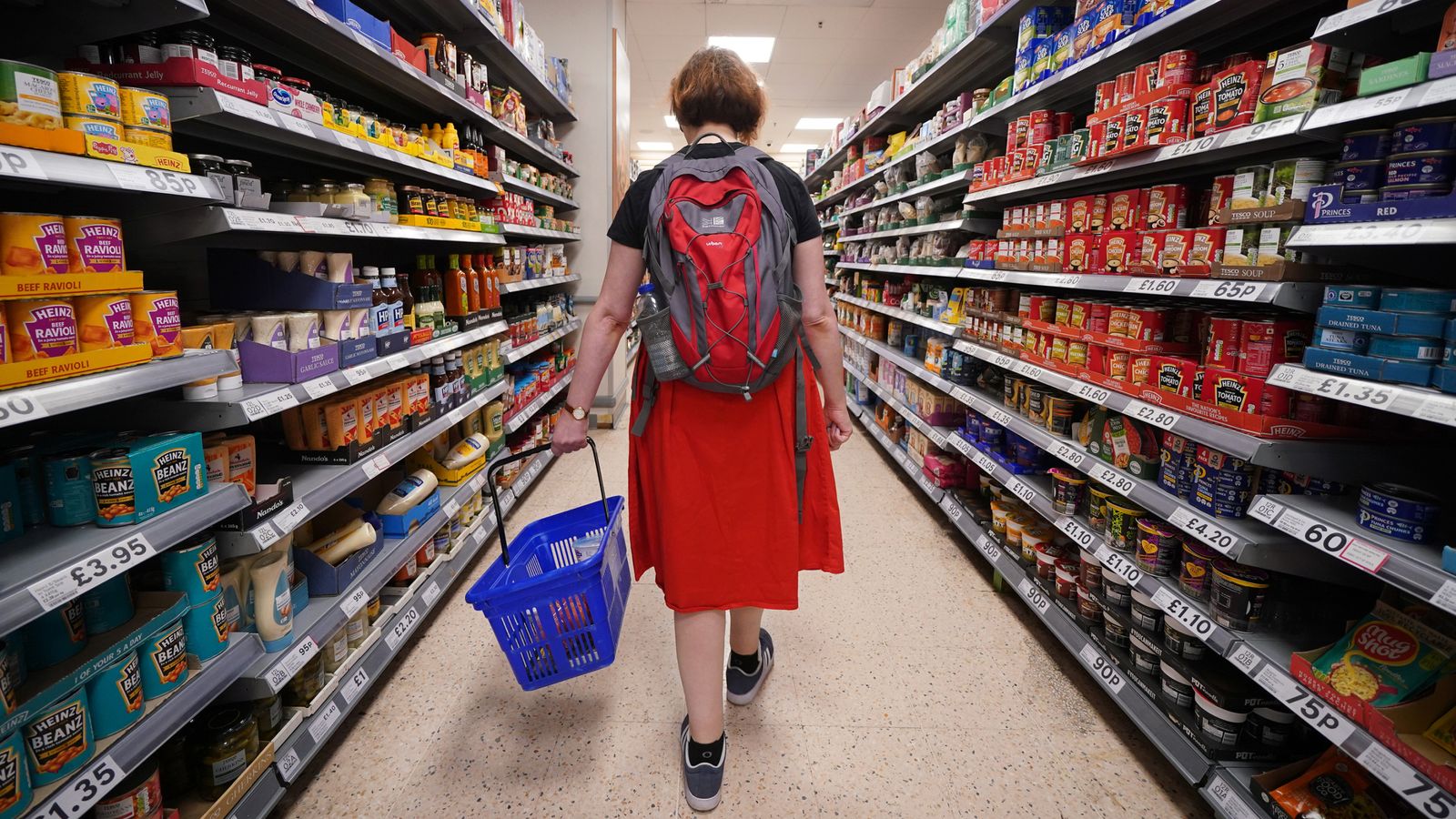Mouthwash, teabags and sausages have all fallen victim to “shrinkflation” as manufacturers and retailers cut costs, a watchdog has found.
Which? found that Listerine Fresh Burst mouthwash shrank from 600ml to 500ml but went up in price by 52p at Tesco, forcing shoppers to pay 21% more for 17% less – an increase to the unit price per 100ml of 46%.
PG Tips The Tasty Decaf Pyramid tea bags also went from containing 180 teabags to just 140 at a number of supermarkets.
Spending calculator: See which prices have gone up or down
Also becoming smaller was Lurpak Slightly Salted Butter Box from 225g to 180g, Yeo Valley Organic Salted Spreadable from 500g to 400g and Coffee Mate Original Whitener from 500g to 450g, Which? said.
The consumer group found other products were downgraded to include fewer expensive ingredients in examples of so-called “skimpflation”, including Tesco Finest sausages reduced from 97% pork to 90% and Yeo Valley Spreadable Butter from containing 54% butter to 50%.
Which? found that over three-quarters of people (77%) have noticed “shrinkflation”, and 36% had noticed “skimpflation”.
Manufacturers told the watchdog that changes often reflected their own costs or helped to keep products more affordable for consumers, and in some cases had improved the flavour or healthiness of a product.
Which? Retail editor Ele Clark said: “Supermarkets and manufacturers must be more upfront by making sure changes to popular products are clear, and by ensuring that unit pricing is prominent, legible and consistent in-store and online so that shoppers can easily compare prices across different brands and pack sizes.”
A spokesman for Kenvue, which makes Listerine, said: “Like many other manufacturers, we are faced with cost increases – especially in raw material and production costs and have had to adjust our prices.
“The current recommended retail price (RRP) for Listerine reflects these cost increases and our ongoing investment in the product. While we as the manufacturer set the RRP, the final pricing decision is at the sole discretion of retailers.”
PG Tips manufacturer Lipton Teas said: “The average price of a PG Tips decaf tea bag fell 10% between January 2021 and January 2022, according to Nielsen national pricing data.
“Pricing is at the absolute discretion of the retailers of course and there may well be promotional in-store activity affecting Which?’s research.”
Read more:
Energy supplier with worst ranking revealed – but three are recommended
One third of UK adults will run out of money by end of January, survey says
Inflation surprisingly rises after cost of tobacco increases
A spokeswoman for Arla, which makes Lurpak, said: “Our new 400g spreadable and 200g block options have not been kept at the same price – the prices have reduced in proportion with the pack size reduction. Not only has the price reduced because of the smaller pack size, but the price has also reduced per kg.”
A Tesco spokesman said: “Changes to products are often to make them tastier or healthier. In the case of our Finest sausages, we updated the recipe in 2021 to deliver a healthier and better-tasting product.”
Nestle, which makes Coffee Mate Original, said: “Like every manufacturer, we have faced significant increases in the cost of raw materials, energy, packaging and transportation, making it more expensive to manufacture our products.
“We are doing everything we can to manage these costs in the short-term, but in order to maintain the highest standards of quality, it is sometimes necessary to make minor adjustments to the weights of our products.”
Follow the Daily podcast on Apple Podcasts, Google Podcasts, Spotify, Speaker
A Yeo Valley spokesperson said: “Yeo Valley Organic shared the news with consumers ahead of the changes in-store through its website and email.
“There’s no hiding from the fact that cost of producing high-quality tasty organic food has never been higher.
“While pricing is set by retailers, we made the hard decision to reduce the pack size to help keep organic as accessible as possible.”
Deltapoll surveyed 1,568 British adults in October.

